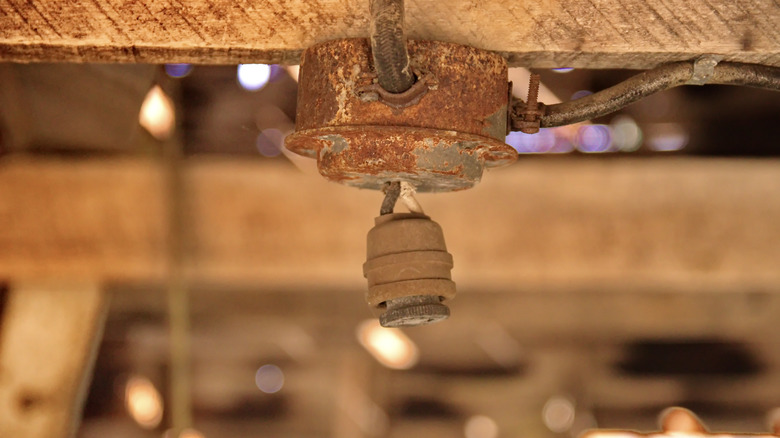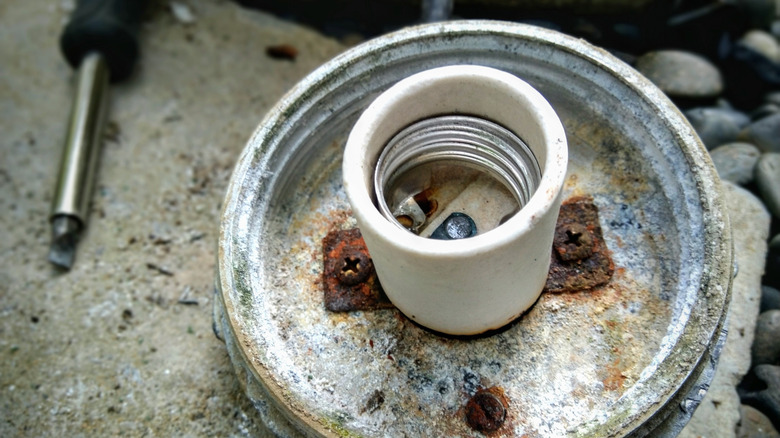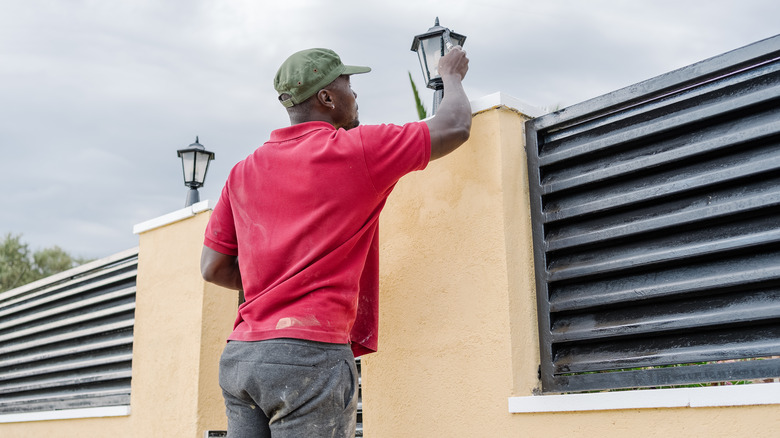Clean Corroded Light Sockets Like A Pro With These Simple Tips
Whether it's been a while since you changed a basement lightbulb or one in your bathroom is starting to look a little rusty, corroded light sockets are a common problem. The corrosion typically occurs when moisture or humidity comes into contact with the metal parts of the socket. This is especially common with outdoor lights, bathrooms, basements, or any other areas that are prone to dampness.
Over time, the metal deteriorates or rusts, which interferes with the electrical connection between the bulb and the socket. This can disrupt the connection enough to make the light to start to flicker or stop working entirely. If left unchecked, it can cause serious safety hazards in the home, including electrical shorts or even fires. This is why cleaning them isn't just about the functionality of the bulb; it's also a matter of safety. The good news? You can clean them yourself with just a bit of know-how.
You'll just need some simple ingredients like vinegar, lemon juice and baking soda, which effectively remove corrosion without the need for special tools or products. However, it's important to avoid using any overly abrasive materials on the socket. You'll also want to take steps to prevent corrosion in the future by applying a protective lubricant after cleaning.
How to clean a corroded light socket
First, always turn off the power at the breaker or unplug the light fixture before you attempt to clean a corroded light socket. The last thing you want is to get shocked! You don't need any fancy tools, and you likely have most of what you need already in your kitchen cupboards. Lemon juice and white vinegar are great at dissolving rust. You can add some baking soda for tougher spots. You'll also need a small brush (a toothbrush works great), along with some cotton swabs or a lint-free cloth.
Remove the bulb and dab vinegar or lemon juice onto rusted areas of the socket. These mild acids will help dissolve the rust without causing any damage to the metal. Let it sit for a few minutes to loosen the corrosion, then gently scrub the area with the toothbrush. Once the rust is removed, wipe the socket clean with a dry cloth or swab, making sure it's completely dry before reinserting the bulb. For extra protection, apply a small amount of vaseline or dielectric grease to the contacts, which will help block moisture from reaching the metal and prevent future corrosion.
What not to do and prevention tips
While removing corrosion is necessary, you should make sure to avoid certain cleaning methods that could cause more harm than good. Although some people recommend using sandpaper or an emery board as a quick fix, they are not always the best choices. While these methods effectively remove rust, they can also scratch and thin out the metal, adding to any existing deterioration and making it more prone to future corrosion. Over time, these scratches weaken the contacts, reducing their ability to make proper electrical connections.
There are some preventative measures you can take to keep the light sockets from rusting again. Keeping moisture away is the key to preventing corrosion. In areas with high humidity, like bathrooms or outdoor settings, you'll want to use weatherproof fixtures that are designed specifically for those environments. Also, make it a habit to check your sockets from time to time for signs of rust or corrosion. Catching and cleaning minor corrosion early can save you from dealing with larger problems later on. By taking the time to clean and protect your light sockets, you'll ensure that your lighting fixtures continue to function safely and efficiently.


